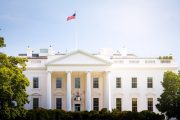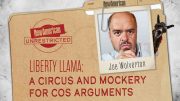
The NSA has been forced to admit it has violated American citizens’ personal privacy thousands of times — and even transgressed its own insanely loose rules — with warrantless surveillance, thanks to a lawsuit by the American Civil Liberties Union. The NSA released a series of quarterly reports from 2001 through 2013 revealing many ongoing privacy violations against Americans on its website in a document dump just before the Christmas holiday.
Privacy advocates such as The Intercept’s Glenn Greenwald dubbed the disclosure the “Christmas Eve Surprise” and depicted its timing as an attempt to minimize public discussion of the rights violations.
The NSA collects telephone and Internet data on all Americans — and on as many foreigners as it can — without a warrant as required by the Fourth Amendment to the U.S. Constitution. NSA advocates of warrantless surveillance suggest that Americans’ privacy will be protected because the information collected is studied only by qualified NSA personnel who have a legitimate national security reason to see it. Many defenders of the unconstitutional warrantless surveillance (such as retiring House Intelligence Committee Chairman Mike Rogers [R-Mich.]) have claimed “zero privacy violations” among NSA surveillance policies; however, the NSA document release reveals that Rogers’ July 23, 2013 statement on the CBS show Face the Nation was factually untrue.
The NSA documents reveal a variety of procedural violations that varied along a spectrum from innocent bureaucratic bungling to NSA personnel spying on their wives and lovers. During every quarter there were numerous privacy violations and disclosurea of personal information from what the NSA termed “United States Persons.”
If even the chairman of the House Intelligence Committee was unfamiliar with such disclosures, what can be said of the level of congressional oversight of the NSA?
The NSA claimed in a statement on the Christmas Eve disclosure that “These materials show, over a sustained period of time, the depth and rigor of NSA’s commitment to compliance. By emphasizing accountability across all levels of the enterprise, and transparently reporting errors and violations to outside oversight authorities, NSA protects privacy and civil liberties while safeguarding the nation and our allies.” Despite the claim to “transparency,” the heavily redacted documents proved that the thousands of privacy violations against Americans were released only as a result of an ACLU lawsuit.
And the disclosure of the ongoing privacy violations — along with the continued denials by officials charged with oversight of the NSA — leads to questions of what other privacy violations are occurring.
In the lead-up to a 2013 House vote on warrantless surveillance, House Intelligence Committee Chairman Rogers said this on the CBS show Face the Nation:
The day before the vote, people were asking, “How many of the numbers have recordings attached to them?” Well, the answer is zero. If you have to ask that the day before the vote — I knew I was in an education problem here. There are no recordings of phone calls; there are no dossiers. They do not record your e-mails. None of that was happening, none of it, zero.
However, it was later revealed by The Intercept that the audio content of thousands of Americans’ telephone calls was being recorded as part of an NSA dragnet that swept up telephone and Internet traffic in several foreign counties.
The NSA is not the only branch of law enforcement that has deliberately ignored the U.S. Constitution’s Fourth Amendment requirements for warrants. Local law enforcement agencies also use a warrantless wiretapping device called a “Stingray” to listen to local cell phone calls, and the U.S. Drug Enforcement Agency gets a copy of much of the data gathered by the NSA, and stores it for a longer period of time than the NSA. The U.S. Marshal’s Service has an airborne version of Stingray that can spy on a metropolitan area of cell phone calls.
Photo: AP Images
Related article:




